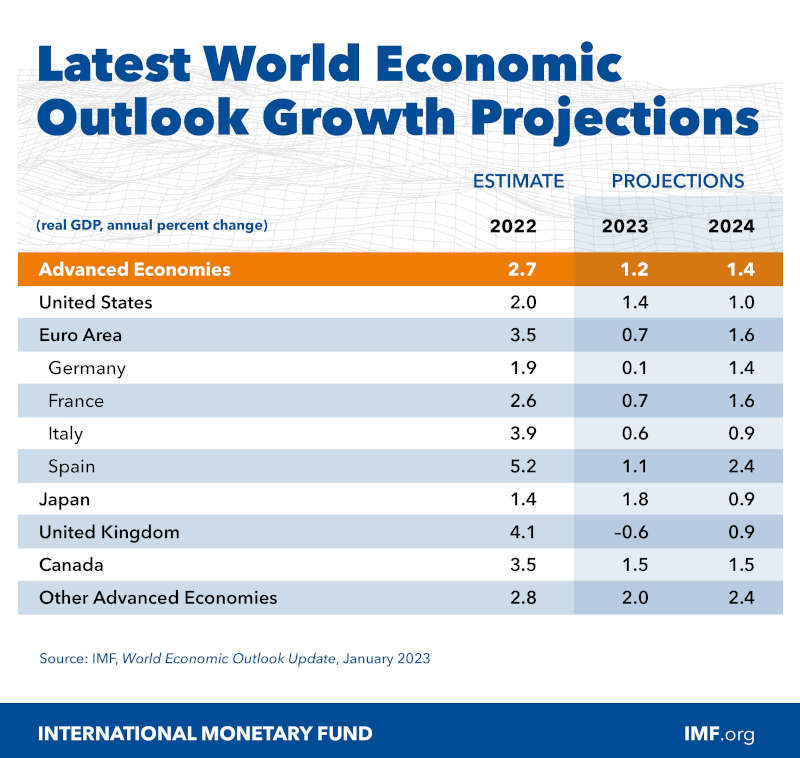Global Inflation Will Fall in 2023 and 2024: IMF

Global Inflation Will Fall in 2023 and 2024: IMF
The rise in central bank rates to fight inflation and Russia’s war in Ukraine continue to weigh on economic activity.
Global growth is projected to fall from an estimated 3.4 percent in 2022 to 2.9 percent in 2023, then rise to 3.1 percent in 2024, according to the International Monetary Fund (IMF). The forecast for 2023 is 0.2 percentage point higher than predicted in the October 2022 World Economic Outlook (WEO) but below the historical (2000–19) average of 3.8 percent.
In its January 2023 update of WEO, IMF states that the rise in central bank rates to fight inflation and Russia’s war in Ukraine continue to weigh on economic activity. The rapid spread of Covid-19 in China dampened growth in 2022, but the recent reopening has paved the way for a faster-than-expected recovery. Global inflation is expected to fall from 8.8 percent in 2022 to 6.6 percent in 2023 and 4.3 percent in 2024, still above pre-pandemic (2017–19) levels of about 3.5 percent.

The balance of risks remains tilted to the downside, but adverse risks have moderated since the October 2022 WEO. On the upside, according to the IMF, a stronger boost from pent-up demand in numerous economies or a faster fall in inflation are plausible.
On the downside, severe health outcomes in China could hold back the recovery, Russia’s war in Ukraine could escalate, and tighter global financing costs could worsen debt distress. Financial markets could also suddenly reprice in response to adverse inflation news, while further geopolitical fragmentation could hamper economic progress.
In most economies, according to the IMF, amid the cost-of-living crisis, the priority remains achieving sustained disinflation. With tighter monetary conditions and lower growth potentially affecting financial and debt stability, it is necessary to deploy macroprudential tools and strengthen debt restructuring frameworks.
The IMF observes that accelerating Covid-19 vaccinations in China would safeguard the recovery, with positive cross-border spillovers. Fiscal support should be better targeted at those most affected by elevated food and energy prices, and broad-based fiscal relief measures should be withdrawn. Stronger multilateral cooperation is essential to preserve the gains from the rules-based multilateral system and to mitigate climate change by limiting emissions and raising green investment.





